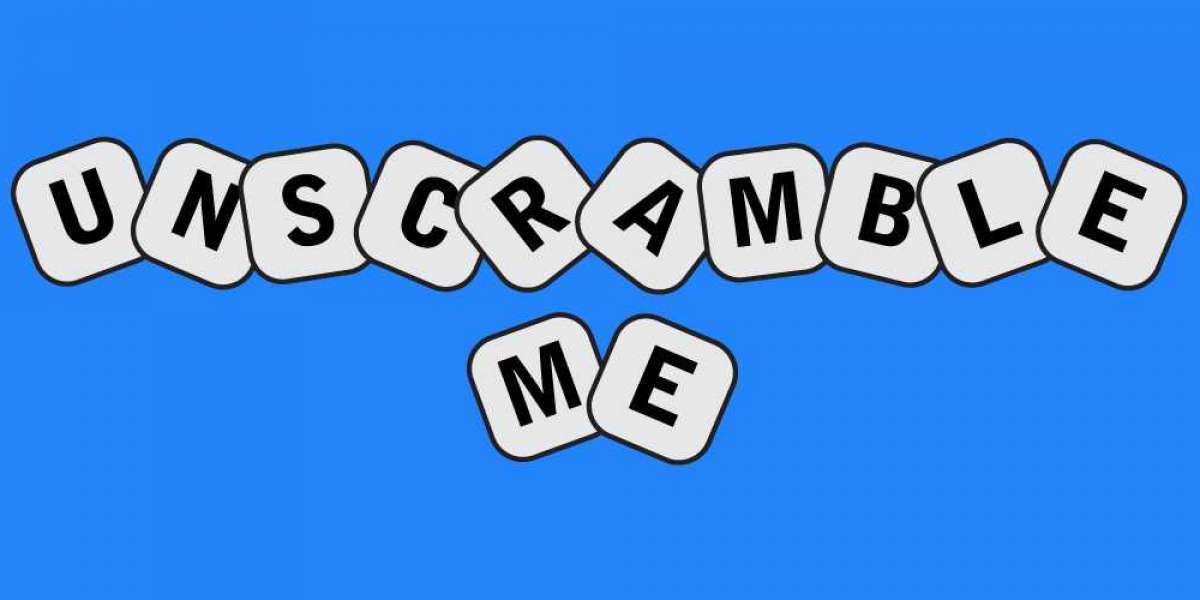Unscramble games are a fun and challenging way to test your word skills and vocabulary. Whether you're a beginner or an experienced player, understanding the rules and employing the right strategies can help you succeed. In this article, we will explore everything you need to know about unscramble games, from how to play to the best tips for winning quickly.
What Is an Unscramble Game?
An unscramble game involves rearranging a set of mixed-up letters to form words. The primary objective is to identify and arrange the correct letters to form a valid word, often within a time limit or as part of a puzzle. These games help improve vocabulary, problem-solving skills, and cognitive function.
How Does an Unscramble Game Work?
The rules of an unscramble game are simple:
- Mixed-up letters are presented in a jumbled order.
- Rearrange the letters to form one or more words.
- Submit your answers and check if they are correct.
Some versions may have hints or categories to make the game more interesting. You can play against a timer, against others, or in your own time.
Types of Unscramble Games
There are various types of unscramble games available, including:
- Word puzzles: Where you have to form a single word from a set of scrambled letters.
- Jumbled sentence: Where you unscramble multiple words to form a meaningful sentence.
- Timed challenges: Where players must unscramble words as quickly as possible to earn points.
For a detailed look at unscrambling, check out this guide to unscrambling words.
How to Play an Unscramble Game
If you're new to unscramble games, don't worry! Here’s a step-by-step guide to get you started:
Step 1: Understand the Puzzle
Before jumping into the game, take a moment to analyze the scrambled letters. Make a mental note of any possible prefixes or suffixes that could help form a word.
Step 2: Start Small
If you’re unsure, try identifying shorter words first. This could help you uncover longer words that can be formed from the remaining letters.
Step 3: Rearrange the Letters
Use your knowledge of common word patterns and letter combinations to rearrange the letters and form possible words. Try different combinations, and don't hesitate to guess!
Step 4: Submit Your Answer
Once you think you have a word, submit it and see if it’s correct. If it is, great! If not, keep trying different combinations until you solve the puzzle.
Step 5: Keep Practicing
The more you play, the better you’ll get at identifying letter patterns and solving puzzles quickly. Practice makes perfect!
The Role of Unscramble Games
Unscramble games serve several important purposes:
Improving Vocabulary: By playing unscramble games, you can learn new words and expand your vocabulary. The more you practice, the more words you will recognize and be able to form.
Cognitive Enhancement: These games stimulate your brain and enhance cognitive functions such as memory, pattern recognition, and problem-solving skills.
Entertainment and Fun: Unscramble games are an excellent way to relax and pass the time while keeping your mind sharp.
Social Interaction: Many unscramble games are multiplayer, allowing you to compete against friends or other players around the world. This social aspect can make the game even more engaging.
Best Tips to Win and Make Fast Unscramble Words
Winning in an unscramble game often comes down to speed, skill, and strategy. Here are some tips to help you become a faster and more effective player:
1. Look for Common Prefixes and Suffixes
Start by looking for common prefixes like "un," "re," or "dis" and suffixes like "ing," "ly," or "ed." These often appear in longer words and can help you get started quickly.
2. Focus on Short Words First
Short words are easier to spot and will help you get a foothold in the puzzle. Once you form smaller words, it’s easier to recognize the larger words that can be made with the remaining letters.
3. Use Word Patterns
Certain letter combinations are more common than others. For example, "th," "sh," "ch," and "ea" are frequent in English words. Keep an eye out for these patterns to speed up your unscrambling.
4. Use the Timer to Your Advantage
If you’re playing a timed game, practice under pressure. The more you practice with a timer, the more efficiently you’ll work. Don’t waste time on a single word if you're stuck—move on and come back later.
5. Play Regularly
Like any game, the more you play, the better you’ll get. Set aside time each day to practice unscrambling words. You’ll find that your speed and ability to form words improve over time.
6. Learn From Mistakes
Don’t be afraid to make mistakes. In fact, use them as learning opportunities. When you get a word wrong, analyze it and figure out what went wrong. Over time, you’ll learn to recognize patterns and make fewer mistakes.
7. Use Word Solver Tools
If you're truly stuck, using online word solver tools can help you find potential words. These tools allow you to input scrambled letters and will generate all possible words from them.
For more insights on unscrambling, visit Big Write Hook and explore additional resources.
Advanced Strategies for Expert Players
If you’ve been playing unscramble games for a while and want to take your skills to the next level, try these advanced strategies:
1. Study Word Lists
Familiarize yourself with lists of words that are often used in unscramble games. This can include commonly used nouns, verbs, adjectives, and more. A word list can act as a mental reference when playing under pressure.
2. Learn Word Roots
Many words in the English language come from Latin or Greek roots. Understanding these roots can help you identify more words from a set of letters.
3. Practice Anagramming
Anagrams are similar to unscramble games, but they involve rearranging all the letters of a word or phrase. Practicing anagrams can increase your ability to spot patterns and recognize possible words more quickly.
4. Play with Different Strategies
Some players focus on solving the puzzle with only the longest possible words, while others prefer to get quick, smaller wins. Try different strategies to find what works best for you.
5. Track Your Progress
Keep track of your scores and times to measure your progress. Competing against your previous best will push you to improve and enhance your speed and accuracy.
Conclusion
Unscramble games are not only a fun way to pass the time but also a great tool for enhancing your vocabulary, problem-solving skills, and cognitive abilities. Whether you're a beginner or an experienced player, understanding the rules and using the right strategies can help you improve your gameplay. By practicing regularly and implementing these tips, you’ll become a master at unscrambling words in no time!
Don’t forget to explore more about unscrambling and boost your word game at Big Write Hook and dive deeper into the world of word puzzles with resources from Unscrambling.







